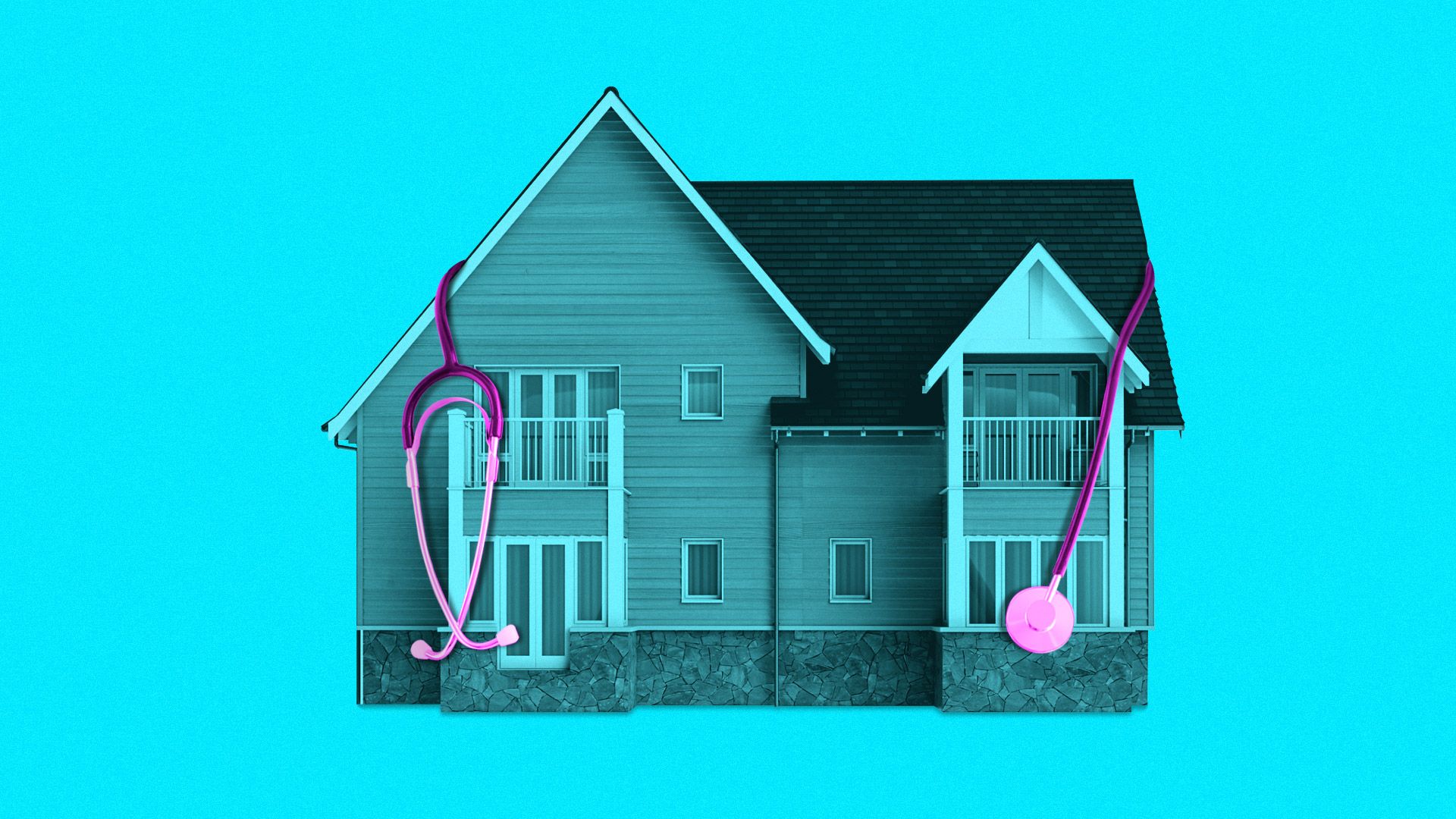Taking care of coronavirus patients after they leave the hospital
Add Axios as your preferred source to
see more of our stories on Google.

llustration: Eniola Odetunde/Axios
Hospitals have been clearing beds to care for the influx of coronavirus patients, but there's a looming capacity and equipment problem for the vast majority of patients who recover and need to be discharged to another facility.
Reality check: "I don't know that there's a nursing home in the country right now that is really able to admit an individual who is COVID-19-positive," said David Grabowski, a Harvard professor who studies post-acute care.
The big picture: Millions of people with chronic health conditions get care through home health agencies, nursing homes, assisted living facilities, rehab centers and long-term hospitals.
- A flood of coronavirus patients who need extra care in these places after a hospital stay would put a strain on the system.
- Many nursing homes, which have poor track records with infection control, will be in the spotlight after the federal government relaxed regulations for how quickly they could admit patients from hospitals.
- Nursing homes also are especially vulnerable places for the disease to spread and kill: The epicenter of the U.S. outbreak was a nursing home in Kirkland, Washington.
What's next: Grabowski and many other post-acute experts are warning that precautions must be taken.
- Every patient who is discharged from a hospital to another care facility, regardless if they had COVID-19, should get tested for COVID-19.
- Low-income workers at these facilities will need more paid sick leave, and they will need more protective gear to prevent the spread.
- States should create specialized post-hospital facilities that only house COVID-19 patients to keep the risk of spread lower — something that Connecticut and Massachusetts are already doing.
The bottom line: Hospitals have invested a lot of time and resources into freeing up beds, expanding intensive care units and acquiring ventilators. The same thinking should apply for care that's needed after the hospital.
